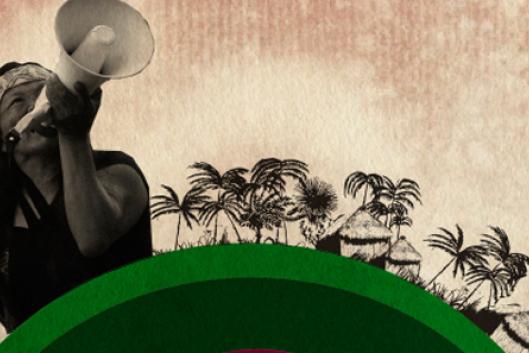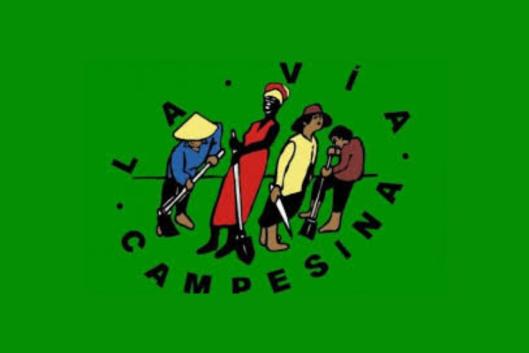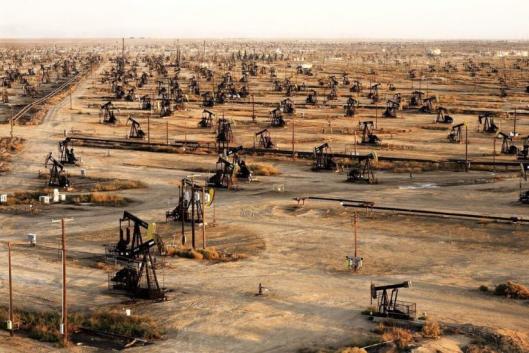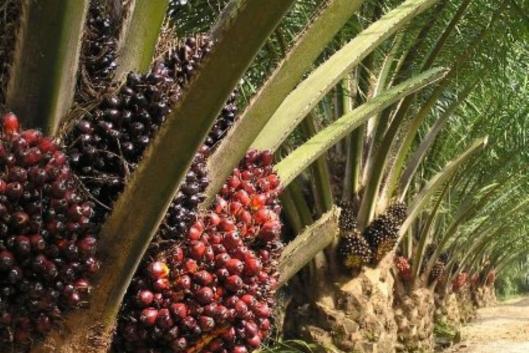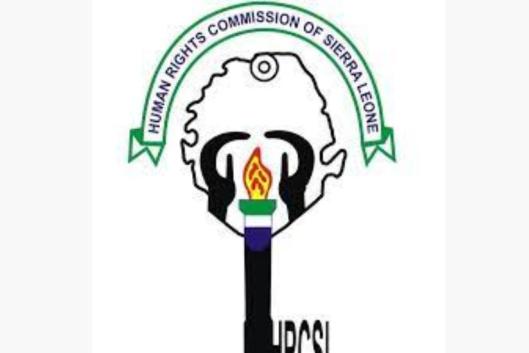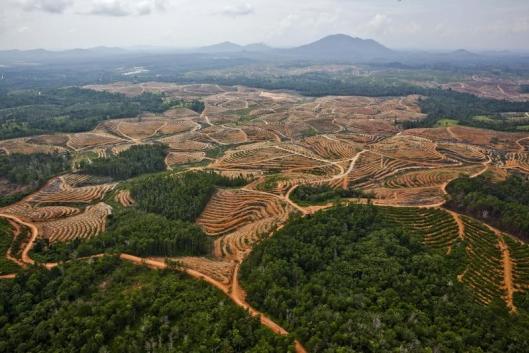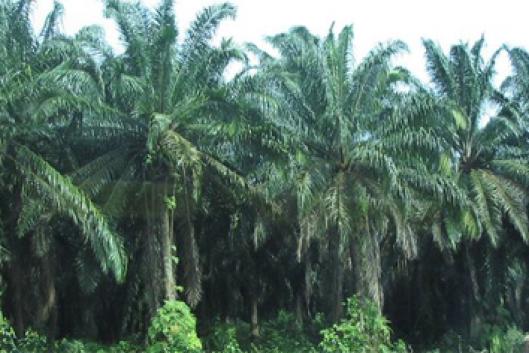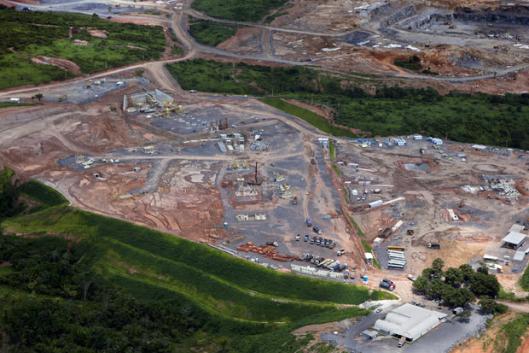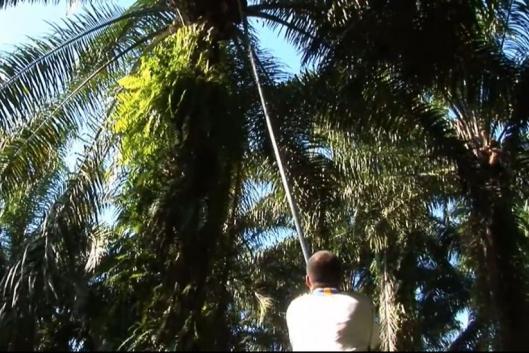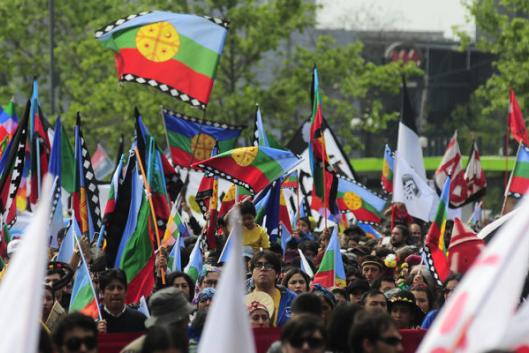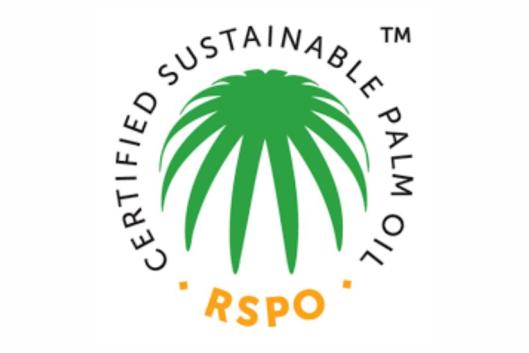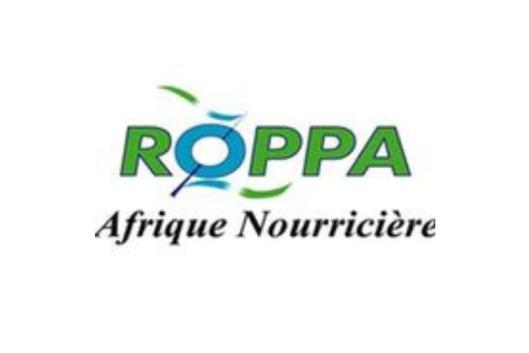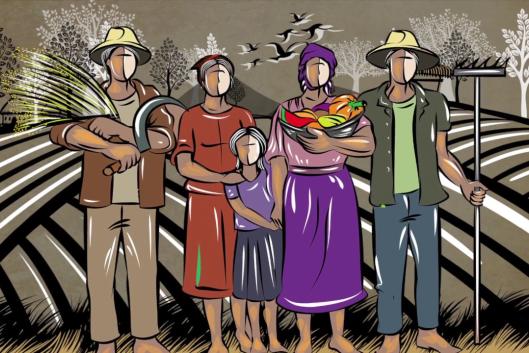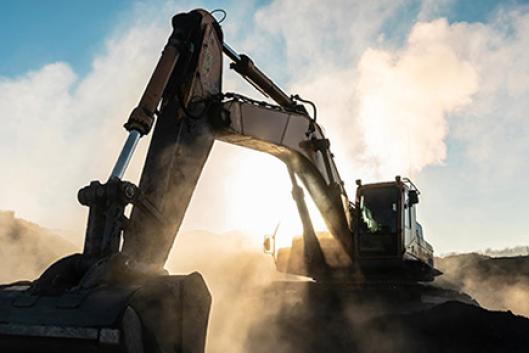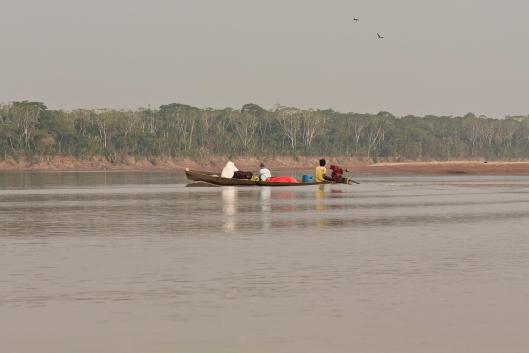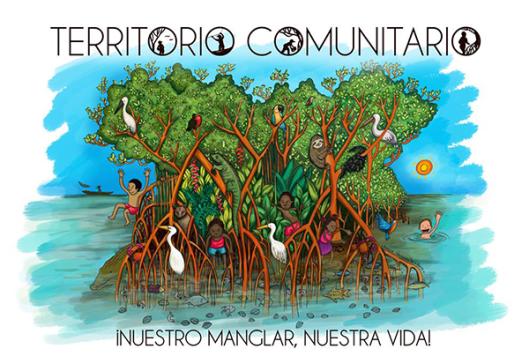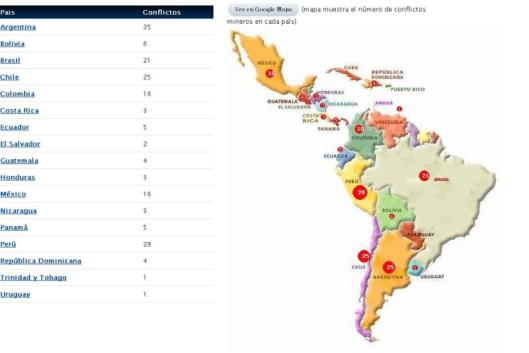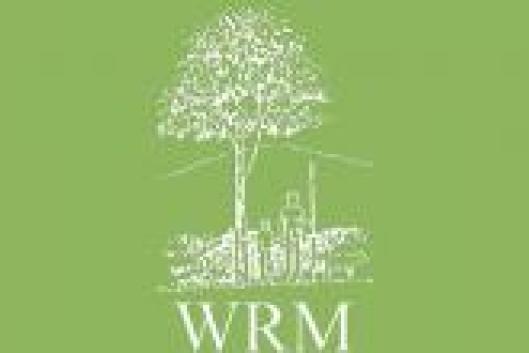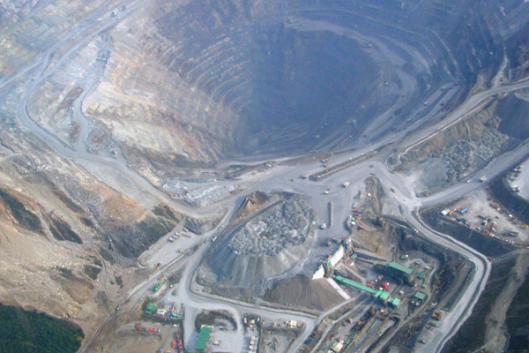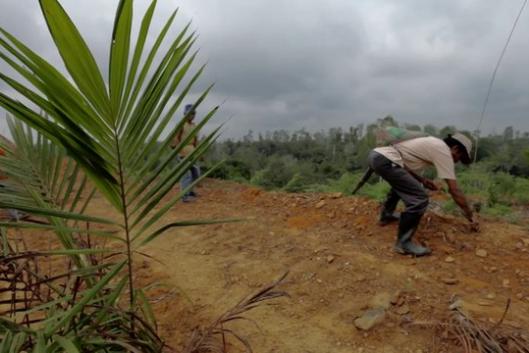At the 18th meeting of the Conference of the Parties to the United Nations Framework Convention on Climate Change, held in Doha, Qatar, negotiations around REDD+ broke down primarily as a result of one issue in particular: how to verify the emission reductions achieved by avoiding deforestation through REDD+ projects.
While the countries of the North pushed for verification to be carried out through an external, international process, the countries of the South want to deal with verification domestically, in their own countries. Unless an agreement is reached on this point, it is unlikely that the countries of the North will make financial resources available for REDD+ projects. What can we say about this impasse?
Issue 185 - December 2012
The focus of this issue: Human Rights
WRM Bulletin
185
December 2012
OUR VIEWPOINT
THE FOCUS OF THIS ISSUE: HUMAN RIGHTS
-
30 December 2012Since its founding, WRM has worked in defence of human rights when denouncing deforestation brought about by oil drilling, mining, logging, the construction of dams and other megaprojects, and the expansion of monoculture tree plantations and agribusiness in general. This is because, in every one of the cases denounced, the rights of communities who live in or depend on forests are systematically violated.
MEGAPROJECTS, DEFORESTATION AND VIOLATION OF HUMAN RIGHTS: CASES AND DENOUNCES FROM THE SOUTH
-
30 December 2012Fossil fuels have driven current modes of civilisation for over one and a half centuries. Coal, crude oil and gas enabled the world to shift from humans and animals as energy generators to machines that opened the highway to endless consumption. Crude oil appears cheap because the real costs are externalised. Today, with the days of easy oils ending we are seeing a push into extraction in deep waters and fragile ecosystems.
-
30 December 2012Under the slogan ´Our Future is Now´, more than 150 people – men, women, youth and elderly - from communities inside oil palm concession areas in Liberia gathered between 27 and 29 November in Bopolu City – Gbarpolu County - to discuss the expansion of export-oriented oil palm plantations in Liberia and the impacts of this expansion on their livelihoods. Two big oil palm companies are active in Liberia: the Malaysia-based company Sime Darby with a 311,187 ha concession area, conceded through a 63-years contract with the Liberian government, signed in 2009. The company is allowed to plant 220.000 ha of oil palm.
-
30 December 2012On 1st of December 2012, aggrieved landowners from 36 villages in Malen Chiefdom, affected by large-scale oil palm plantations of the Socfin company, sent a letter through their local association (MALOA) to the Human Rights Commission in Sierra Leone, denunciating human rights abuses such as ongoing harassment, molestation and intimidation. They declare in the letter that “…we will no longer allow the Socfin Agricultural Company personnel and or their machines to enter upon or operate on our land.” They oppose the land deal the company made with the Paramount Chief and Chiefdom authorities.
-
30 December 2012Elimination of customary laws through regulations In 1950, Indonesia’s forests spanned over 162,290,000 hectares, covering 80% of the country’s 192,257,000-hectare land area. According to the 1999 Forestry Law, the forest area owned by the state accounted for 133,876,645.68 hectares. When it comes to forest and land resource policy in Indonesia, there are two key problems. One is the government’s views of forests and the way it translates them into practice. The other is the difference between how the government regulates land affairs and how the people regulate land ownership.
-
30 December 2012The community-based organization Pangalasag is a member organization of the regional alliance Kalumbay and an organization of Higaonon indigenous people in the municipality of Opol, Misamis Oriental. “Pangalasag”, which means indigenous shield, was created to become a driving force in the resurgence of Higaonon customary laws especially in decision-making and granting of consent, aside from its literal meaning to defend against aggressors. Indeed, the Higaonon have had to defend themselves from decades of dispossession of their ancestral lands which have eroded their culture and customary laws. But some of their leaders stood up and formed the “Pangalasag”.
-
30 December 2012In early December of this year, the Brazilian National Development Bank (BNDES) announced that it was granting a new loan of 22.5 billion reais, the largest in its history, to the Belo Monte hydroelectric dam project. When this is combined with the two previous loans already granted to the Norte Energia Consortium which is responsible for the dam’s construction – 1.1 billion reais in mid-2011 and 1.8 million reais in February 2012 – the bank has contributed 25.4 billion reais to a project that violates all of the technical, legal and economic requirements that are mandatorily applied to this type of operation.
-
30 December 2012The documentary video “Bajo Aguán: Grito por la Tierra” (Bajo Aguán: Cry for the Land) (1) was presented in Honduras on December 10 during a Human Rights Forum organized by the Committee of Relatives of the Detained and Disappeared in Honduras. The documentary is aimed at exposing to the international public the state of constant threat faced by peasant farmers in the Bajo Aguán region of Honduras. Its goal is to “unmask an exploitative model of production, based on large-scale monoculture plantations, in this case of oil palm, which violates human rights in the broadest sense.
-
30 December 2012Chile is currently debating amendments to Decree Law 701, which was passed during the first years of the military dictatorship and has been used for decades to promote the expansion of large-scale monoculture tree plantations. This expansion is driven by hefty government subsidies, and has been achieved at the expense of the violation of the rights of Mapuche indigenous communities, who have been violently evicted from their lands and left marginalized in their own ancestral territory.
PEOPLES IN ACTION
-
30 December 2012The certifying body Roundtable on Sustainable Palm Oil (RSPO) has failed to act against a company looking for RSPO’s seal which has bulldozed farmland and forests belonging to the indigenous community of Muara Tae, assisted by the intimidation of armed police brought in to protect the company.
-
30 December 2012Representatives of the CNCR member farmers' and producers' organizations, as well as other national platforms member of the ROPPA (Network of West-African Farmers' and Producers' Organizations), met from 20 to 22 November, 2012 in Dakar in the framework of the international forum "Family farms constitute the primary food and wealth suppliers in West Africa".
-
30 December 2012Sombath Somphone, a respected social activist winner of the international Ramon Magsaysay award in 2005 for community leadership and founder and former director of the Participatory Development Training Centre has disappeared since December 15 of this year. Family members said he had not returned home and they had no information on his whereabouts. On December 18, a group of Thai civil-society organizations sent an urgent letter to several local agencies, including the PM's Office, the National Assembly, the Foreign Ministry and Public Security Ministry, requesting an investigation into his disappearance.
-
30 December 2012On 26-30 November 2012, the 5th World Social Forum on Migration (WSFM) was held in Manila, Philippines. The WSFM is one of the thematic processes of the World Social Forum (WSF). In the meeting, Asian social movements made a statement on the situation of the ongoing climate negotiations denouncing, among other things, that “with the current proposals on the table, not only are developed countries going to be able escape commitments bywatering obligations down to voluntary pledges but they will also be able to create more carbon markets and loopholes in order to not take any action at all.” And they end saying: “Humanity and Nature are standing at a precipice. But it is not too late. We know what needs to be done, and if we do it together, we can change the system.”
-
30 December 2012A resolution adopted by the Chilean government’s National Geology and Mining Service ordered a temporary but total stoppage of drilling and clearing work on the Pascua Lama mine project in the province of Huasco in the Atacama region. Work was halted due to a contravention of mining safety regulations, namely excessive levels of dust that pose a serious risk to the health of workers. Members of the National Resources Commission announced that they will visit the site and did not rule out the possibility of requesting the environmental reclassification of the project if irregularities are found. http://www.biobiochile.cl/2012/11/10/sernageomin-determina-cierre-temporal-de-trabajos-de-proyecto-minero-pascua-lama.shtml
-
30 December 2012The 6th Pan-Amazon Social Forum was held on December 1 in Cobija, in Bolivia’s Amazon region, on the triple border between Peru, Brazil and Bolivia. “Under the protection of the rubber and chestnut trees, symbols of the Bolivian Amazon,” the Amazonian peoples launched a call for unity to transform the world.
-
30 December 2012At 9:00 a.m. on December 4, uniformed officers of the National Police set fire to the homes and crops of residents and families in Bilsa, located in the canton of Muisne in Esmeraldas province. This community has ancestrally inhabited this spot, where they make a living through gathering crabs and agro-ecological farming practices. The fact that they have lived here for more than 20 years means they have the right to legal title to the land in compliance with the provisions of the country’s Civil Code.
RECOMMENDED
-
30 December 2012The Observatory of Mining Conflicts in Latin America (OCMAL) and Latin American Observatory of Environmental Conflicts (OLCA) have developed the “Map of Mining Conflicts in Latin America” to serve as a database and information system for community management of mining-related social and environmental conflicts in the region. http://basedatos.conflictosmineros.net/ocmal_db/
-
30 December 2012“World Summit on Sustainable Forest (-destruction)”, a satirical blog on the summit that will be held on March 5th-6th 2013 in Stockholm (Sweden). You are invited to attend or follow this World Forgery Summit on sustainable forest destruction. Some of the key questions in the agenda: *Can we find a way to rebrand monoculture plantations as being sustainable? *Is there a way to make the bankrupt carbon trading system look like a part of the solution to the climate crisis? *To which forests can we apply this emerging sister of the Cash Development Mechanism (also known as the Clean Development Mechanism)?
-
30 December 2012“Mining, plantation firms reported for rights abuses”, a Jakarta Post headline informs that mining and plantation companies are among the actors that should be held responsible for numerous human rights abuses in the country, according to a National Commission on Human Rights (Komnas HAM) report. The rights commission revealed that companies ranked second — trailing behind the National Police — in its list of institutions reported for human rights violations. http://www.thejakartapost.com/news/2012/12/12/mining-plantation-firms-reported-rights-abuses.html
-
30 December 2012“Manufacturing Consent” is a film that features evidence and first-hand testimony of the abuses of PT Borneo Surya Mining Jaya (PT Borneo) in Muara Tae. The company, a subsidiary of First Resources Ltd, bulldozed farmland and forests belonging to the indigenous community of Muara Tae, assisted by the intimidation of armed police brought in to protect the company, while trying to obtain RSPO certification under fake information. The film, released by the London-based Environmental Investigation Agency (EIA), lays bare the impact that First Resources' land-grab is having on the lives of the people of Muara Tae. EIA's formal grievance can be read at http://ow.ly/f5vhE
